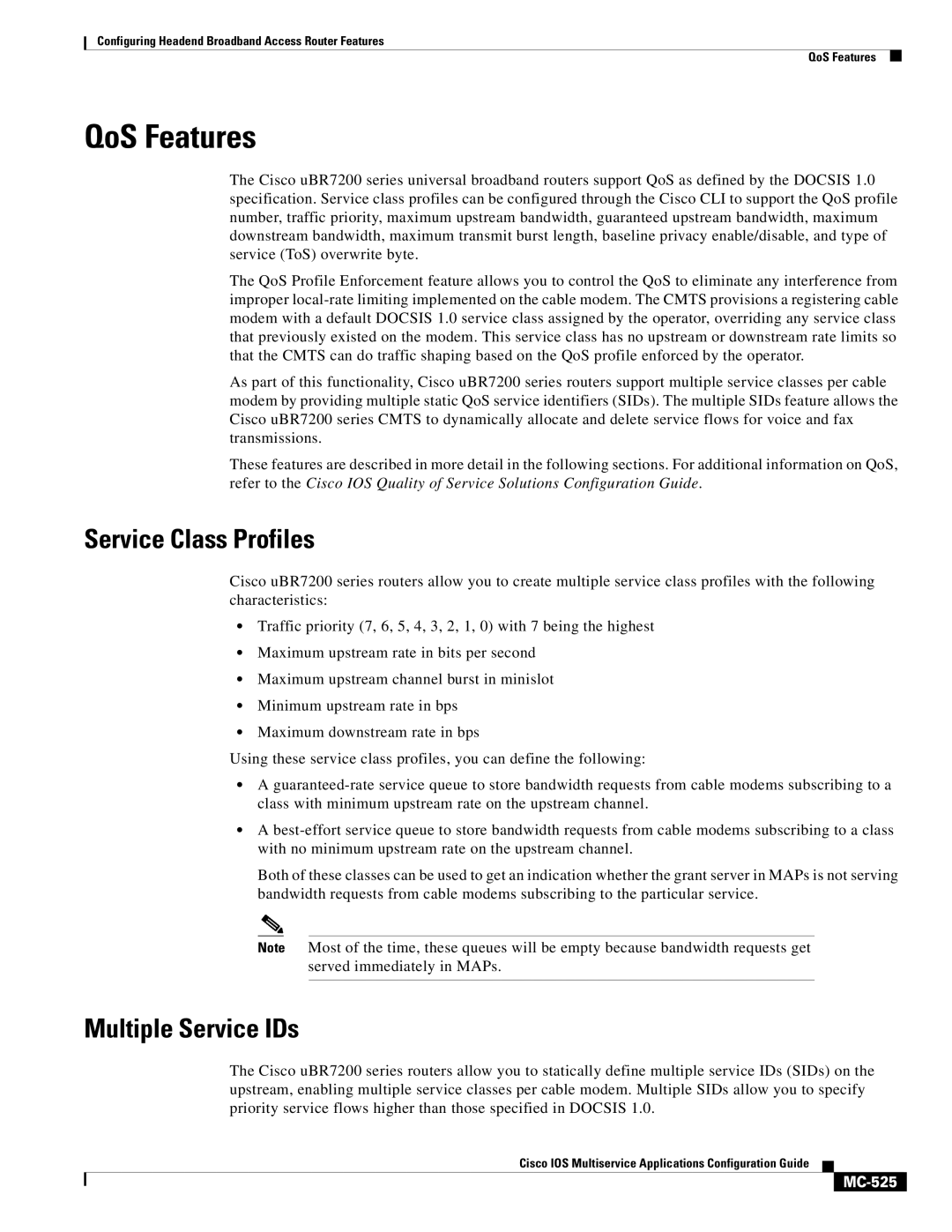
Configuring Headend Broadband Access Router Features
QoS Features
QoS Features
The Cisco uBR7200 series universal broadband routers support QoS as defined by the DOCSIS 1.0 specification. Service class profiles can be configured through the Cisco CLI to support the QoS profile number, traffic priority, maximum upstream bandwidth, guaranteed upstream bandwidth, maximum downstream bandwidth, maximum transmit burst length, baseline privacy enable/disable, and type of service (ToS) overwrite byte.
The QoS Profile Enforcement feature allows you to control the QoS to eliminate any interference from improper
As part of this functionality, Cisco uBR7200 series routers support multiple service classes per cable modem by providing multiple static QoS service identifiers (SIDs). The multiple SIDs feature allows the Cisco uBR7200 series CMTS to dynamically allocate and delete service flows for voice and fax transmissions.
These features are described in more detail in the following sections. For additional information on QoS, refer to the Cisco IOS Quality of Service Solutions Configuration Guide.
Service Class Profiles
Cisco uBR7200 series routers allow you to create multiple service class profiles with the following characteristics:
•Traffic priority (7, 6, 5, 4, 3, 2, 1, 0) with 7 being the highest
•Maximum upstream rate in bits per second
•Maximum upstream channel burst in minislot
•Minimum upstream rate in bps
•Maximum downstream rate in bps
Using these service class profiles, you can define the following:
•A
•A
Both of these classes can be used to get an indication whether the grant server in MAPs is not serving bandwidth requests from cable modems subscribing to the particular service.
Note Most of the time, these queues will be empty because bandwidth requests get served immediately in MAPs.
Multiple Service IDs
The Cisco uBR7200 series routers allow you to statically define multiple service IDs (SIDs) on the upstream, enabling multiple service classes per cable modem. Multiple SIDs allow you to specify priority service flows higher than those specified in DOCSIS 1.0.
Cisco IOS Multiservice Applications Configuration Guide
